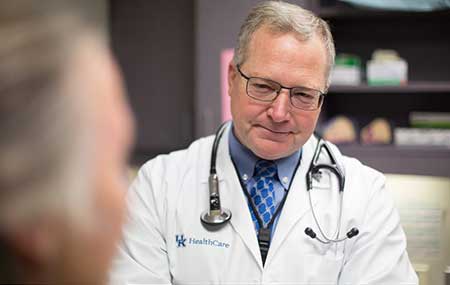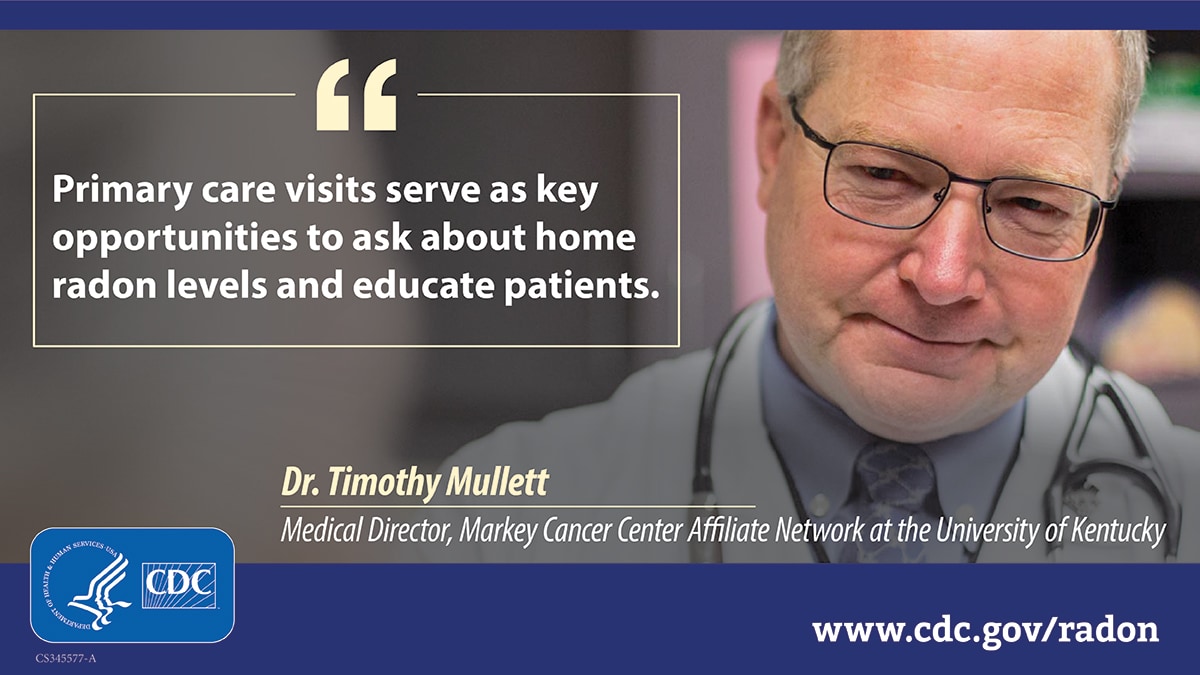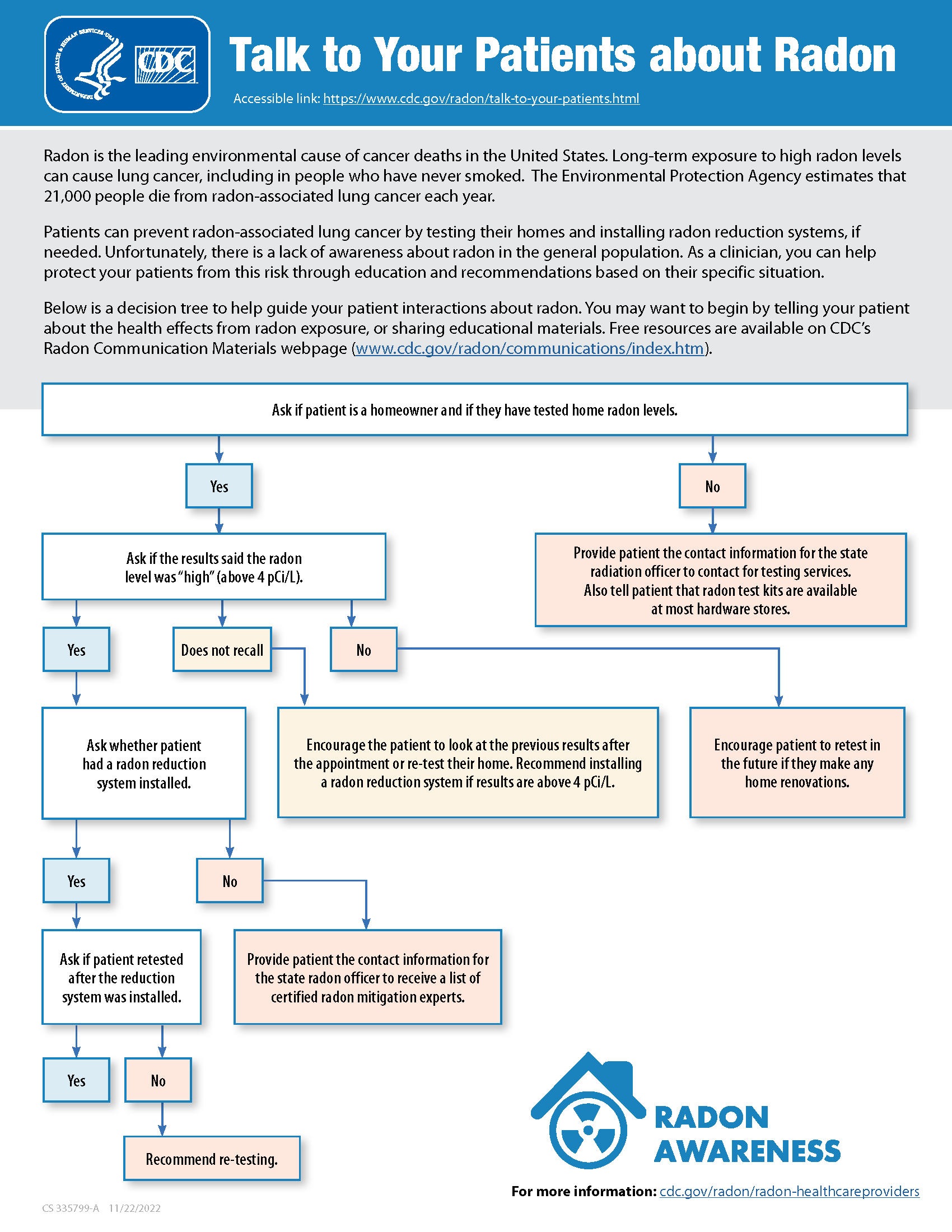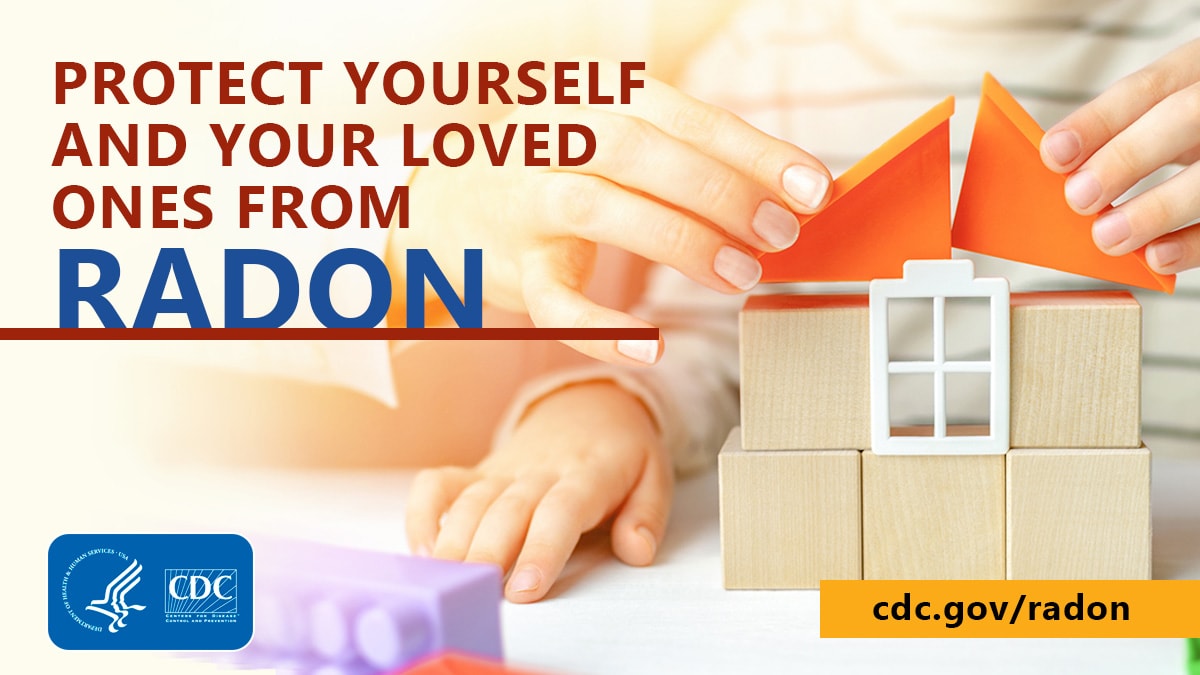At a glance
Healthcare providers can have a significant impact on reducing radon-associated lung cancer. The resources below may help healthcare providers navigate the dangers of radon.

Overview
An estimated 21,000 people die from lung cancer caused by radon exposure each year. It the second leading cause of lung cancer after smoking, according to the Environmental Protection Agency (EPA).
People who smoke or have a history of smoking and are exposed to radon are at a greater risk of developing lung cancer. However, people who never smoke can also get cancer from prolonged exposure to high radon levels.
The risk of lung cancer from radon is preventable but patients need to have the right information.
Reducing the Risk from Radon: Information and Interventions
Reducing the Risk from Radon: Information and Interventions is a guide for healthcare providers developed by the Conference of Radiation Control Program Directors (CRCPD).
In this guide you will find
- Information on radon and how it gets into homes
- Data on the public health impact of radon
- Risk estimates for people who currently smoke, smoked in the past, and for people who have never smoked
- Guidance and resources on radon testing and radon reduction
- An adaptable discussion guide to use when talking to patients about radon
People have health at the top of their minds when they are at doctor's office. Many patients trust their doctors for advice and decisions about their health and wellness. Consider incorporating simple steps into your practice, such as asking patients about whether their home or residence has been tested for radon. Provide your patients with information on radon testing and reduction.
Hanging or distributing information is a simple way to raise awareness and start the conversation. Free resources are available on CDC's Radon Toolkit.



